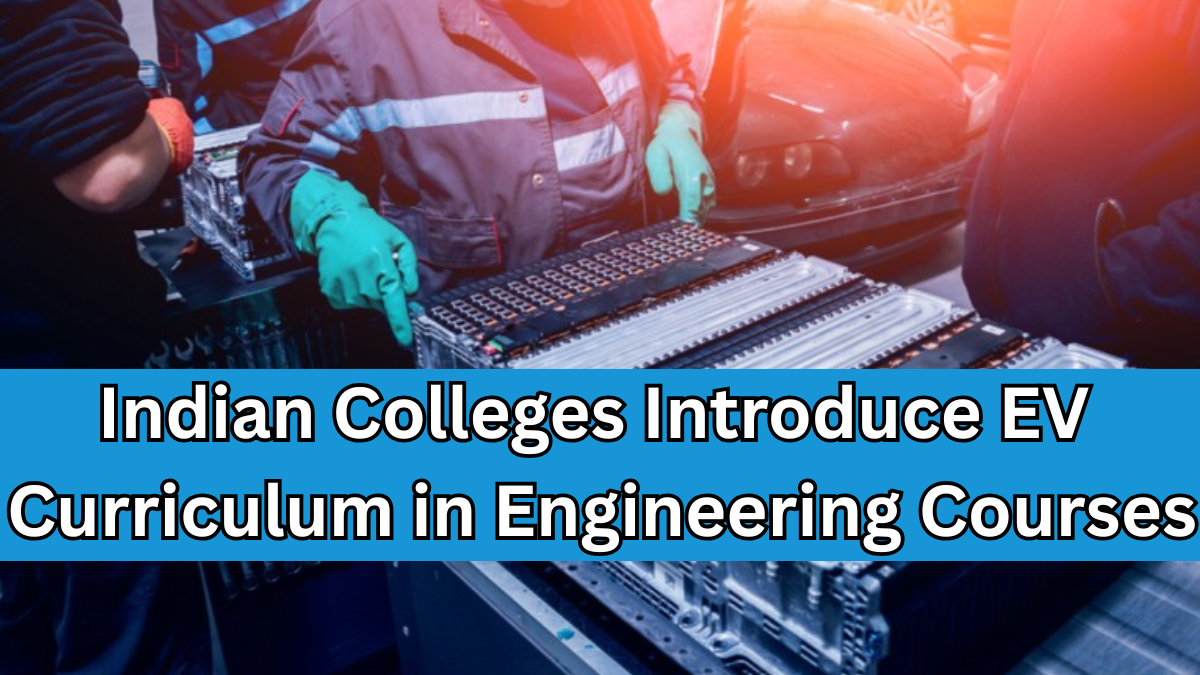As India rapidly moves towards electric mobility, a new wave of EV education is making its way into the college curriculum. Recognizing the urgent need for skilled professionals in the electric vehicle (EV) sector, several top engineering colleges across India are now offering specialized EV-focused courses.
This bold step is expected to prepare the next generation of engineers for the booming EV industry and help India achieve its green mobility goals.

Why EV Education is a Game-Changer for Indian Students
With the government’s increasing push towards electric vehicles, EV education is no longer optional—it’s essential.
Key Reasons Why EV Education Matters
-
Growing Job Opportunities: The EV sector is creating new roles in design, manufacturing, and maintenance.
-
Industry Demand: Companies are actively seeking graduates trained in EV-specific skills.
-
Future-Proofing Careers: Students with EV education will have a competitive edge in tomorrow’s job market.
-
Support for Green India: Educating young minds supports India’s transition to sustainable transport.
Key Engineering Colleges Offering EV Education
Here’s a quick look at some of the top colleges that have already integrated EV education into their college curriculum.
| College Name | Course Focus | Degree Type |
|---|---|---|
| IIT Madras | EV Powertrains, Battery Tech | B.Tech & M.Tech |
| IIT Delhi | EV Design, Energy Storage Systems | M.Tech |
| NIT Trichy | Electric Mobility Systems | B.Tech Specialization |
| Anna University | EV Components, Charging Tech | B.E. & M.E. |
| Delhi Technological University | EV Manufacturing & Control Systems | B.Tech |
What the EV Curriculum Covers
The EV-centric college curriculum is not just about theory—it’s about practical, industry-aligned learning.
Key Topics in EV Education
-
Battery Management Systems
-
Electric Powertrains
-
Charging Infrastructure
-
EV Design & Control
-
Energy Storage Solutions
-
EV Safety Protocols
-
Real-World Industrial Projects
Benefits of EV Education for Students
EV education offers several advantages that can significantly impact a student’s career and India’s sustainable development.
Student Advantages
-
Early exposure to cutting-edge EV technology
-
Internship opportunities with leading EV companies
-
Enhanced employability in the growing green transport sector
-
Strong foundation in future-oriented engineering concepts
Impact on the Indian Auto Industry
The introduction of EV education within the college curriculum is not just about student growth—it’s about building a workforce that can power India’s EV revolution.
Industry Impact
-
Readily available skilled engineers for EV projects
-
Boost to Make in India and self-reliance in EV manufacturing
-
Faster adoption of EV technology across urban and rural India
FAQs
What is EV Education in Indian colleges?
EV education in Indian colleges focuses on training students in electric vehicle technologies such as battery systems, electric motors, and charging infrastructure. It’s now becoming a key part of the college curriculum in many engineering institutes.
Why are Indian colleges introducing EV education?
Indian colleges are introducing EV education to meet the growing industry demand for skilled professionals and to support India’s transition to electric mobility. This step is crucial for producing engineers who can contribute to the green energy movement.
Which Indian colleges are offering EV courses?
Institutes like IIT Madras, IIT Delhi, NIT Trichy, Anna University, and Delhi Technological University have introduced EV education in their college curriculum with specialized degrees and projects.
How will EV education benefit students?
EV education provides students with relevant skills for the emerging electric vehicle industry, increases their employability, offers exposure to green technologies, and prepares them for future-ready careers.
Click here to learn more